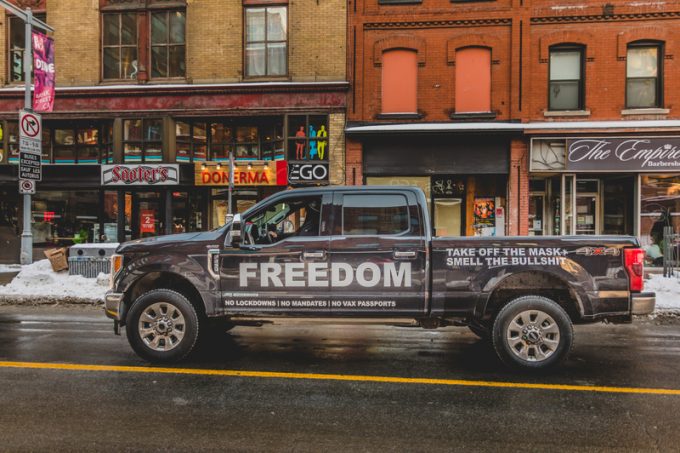Bangladesh looks at demurrage waiver as containers pile up in Chittagong
The Chittagong port yards now have close to 40,000 teu of containers, mainly loaded with ...
TFII: SOLID AS USUALMAERSK: WEAKENINGF: FALLING OFF A CLIFFAAPL: 'BOTTLENECK IN MAINLAND CHINA'AAPL: CHINA TRENDSDHL: GROWTH CAPEXR: ANOTHER SOLID DELIVERYMFT: HERE COMES THE FALLDSV: LOOK AT SCHENKER PERFORMANCEUPS: A WAVE OF DOWNGRADES DSV: BARGAIN BINKNX: EARNINGS OUTODFL: RISING AND FALLING AND THEN RISING
TFII: SOLID AS USUALMAERSK: WEAKENINGF: FALLING OFF A CLIFFAAPL: 'BOTTLENECK IN MAINLAND CHINA'AAPL: CHINA TRENDSDHL: GROWTH CAPEXR: ANOTHER SOLID DELIVERYMFT: HERE COMES THE FALLDSV: LOOK AT SCHENKER PERFORMANCEUPS: A WAVE OF DOWNGRADES DSV: BARGAIN BINKNX: EARNINGS OUTODFL: RISING AND FALLING AND THEN RISING

The so-called Freedom Convoy in Canada has turned from a politicised movement into a supply chain disruption event. And it’s the hard-hit automakers, already struggling from a lack of chips, that are bearing the brunt. The partial blockade of Ambassador Bridge is delaying the movement of parts between factories. Ford and Toyota have been impacted, as have some Tier 1 parts makers, leading the Canadian Vehicle Manufacturers’ Association to urge the protest to end. While it is mostly trucks blocking the way, in fact the local trucking association says “most protesters have no connection to the trucking industry”. The US and Canadian government are working together to mitigate damage to the auto industry, agricultural exports and the flow of labour between the two countries, reports The Washington Post.
Comment on this article